Natural Home Remedies for Anxiety
By Dr Smita Barode +2 more

Get,

to manage your symptom
Get your,


4 Cr+ families
benefitted

OTP sent to 9988776655



You’ve successfully subscribed to receive
doctor-approved tips on
Whatsapp

Get ready to feel your best.

Hi There,
Download the PharmEasy App now!!


Register to Avail the Offer
Send OTPBy continuing, you agree with our Privacy Policy and Terms and Conditions

Hi There,
Sign up on PharmEasy now!!
Trusted by 4 crore+ families

OTP sent to 9988776655



You have unlocked 25% off on medicines




Code: NU25
By Dr Smita Barode +2 more
Table of Contents
Anxiety is often described as the feeling of constant worry that prevents an individual from relaxing. From the point of view of evolution, anxiety is a normal emotion as it has helped humans avoid dangerous situations and eventually adapt, evolve and survive. A thin line exists between this anxiety at the level of just adaptation and distressful morbid anxiety, which requires clinical judgement to diagnose1,2.
The level at which a person experiences anxiety can range from just a fleeting anxiety as one feels before any surgery, to a constant feeling of nervousness that defines an anxiety disorder1.
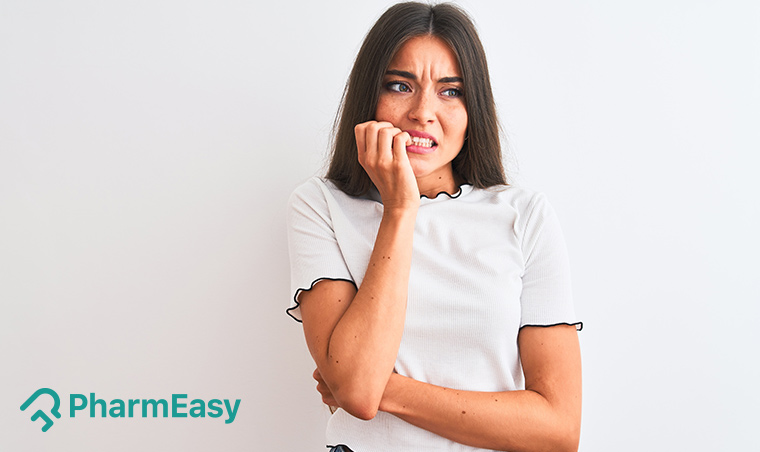
A person is said to have anxiety disorder when the constant feeling of worry just doesn’t go away. Instead, it gets worse as time passes and interferes with routine life.
Anxiety disorders can be of many types, particularly panic disorders, generalized anxiety disorders and phobias3.
The exact cause of anxiety is not known. But there are many reasons:
Anxiety can be of various types:
While anxiety can manifest in various ways depending on the type, there are certain symptoms which can overlap and are commonly seen in all the types:
Natural remedies for anxiety have fewer side effects than conventional medicines used to treat anxiety. Read along to know about some natural home remedies to combat anxiety5.
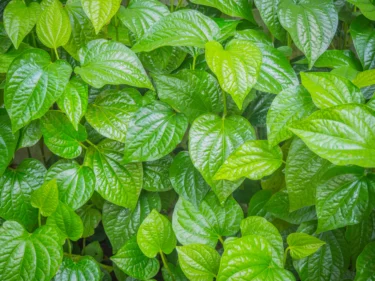
Kava is known to be an anxiety reliever since many years. It is a drink that is prepared from the Piper methysticum plant. Though it relives anxiety, it does not cause a sedative effect. But one must exercise caution while consuming it, as liver poisoning is one of its rare, but serious side effects1.
How to use it?

It is commonly known as Passionflower. Its anxiolytic effect is attributed to its aerial sections, that is the flowers, fruit and the bark. It works by modifying the GABA system6. GABA is an amino acid present in our nervous system and is responsible for neural relaxation7. No side effects have been reported on passionflower consumption.
How to use it?

Lavender has been used traditionally to relieve anxiety. It has over 100 active ingredients, but it’s linalool and linalyl acetate that give lavender the anxiolytic quality. Consult your healthcare provider before you consume lavender as research8 also shows that use of lavender has many side effects like throbbing heartbeats, headaches and gastric issues like diarrhoea, stomach upsets, belching and foul breath.
How to use it?
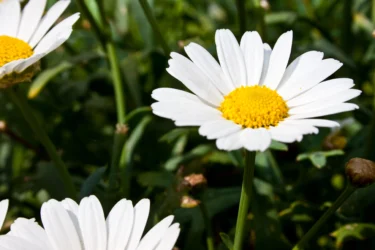
Studies9 have shown chamomile tea to be effective even in cases of generalised anxiety disorder. It is said that the flavonoids present in Chamomile give a calming effect by influencing the transmission of GABA , dopamine, noradrenalin and serotonin or by modifying the hypothalamo-pituitary-adrenal axis in the body, which is integral to the way one reacts to stress10.
How to use it?
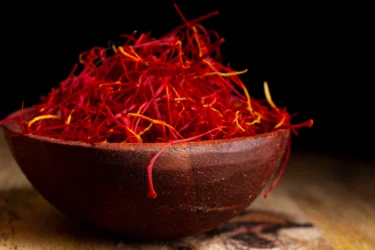
Saffron contains Safranal, the chief bioactive constituent which imparts anxiety relieving properties to saffron. It also gives the saffron its typical fragrance11.
How to use it?
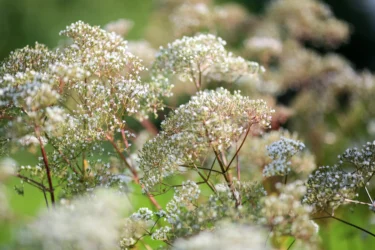
The valerian root has anti-anxiety properties. It contains valerenic acid and valepotriates which imparts anxiolytic and sedative properties to the root12.
How to use it?
Daily intake of Ashwagandha also reduces anxiety and findings14 suggest that high-concentration full-spectrum Ashwagandha root extract improves an individual’s resistance towards stress and thereby improves self-assessed quality of life.
Dr. M.G. Kartheeka, MBBS, MD(Pediatrics)
If you feel your anxiety might be connected to some physical problems, get in touch with your physician who will help you cure the physical issue.
If you experience severe anxiety, seek out a mental health expert who will evaluate your symptoms and treat you accordingly.
Consultation with a psychiatrist, psychologist, management with allopathic medicines, mind body techniques and exercise are well known to help reduce anxiety.
Dr. Ashish Bajaj, M.B.B.S., M.D. in Clinical Pharmacology and Toxicology
Home remedies for anxiety are good nonpharmacological therapies to try out at home. However, one must exercise caution and inform your physician before consuming any of the herbal medicines for anxiety as some of them do cause side effects.
Symptoms of extreme anxiety require treatment by a mental health professional and one must not hesitate to seek help if required.
Also Read: Mental Health In India – Things You Must Know!
Yes, lifestyle changes also have a significant impact on anxiety levels. Few things that you can do at home to manage anxiety are:
Get enough sleep
Avoid leisure drugs and alcohol
Stop smoking and cut back on the intake of caffeinated drinks
Learn healthy techniques of managing stress
Have a healthy, balanced diet13
Treatment for anxiety involves both medications and psychotherapy. Depending on your symptoms, a mental health expert may use either one or a combination of both of the above options. Medications involve anxiolytics, sedatives or anti-depressant drugs.
In psychotherapy, you will be working actively along with a professional to manage your anxiety symptoms. Cognitive Behavioural therapy (CBT) is the most effective type of psychotherapy to manage anxiety13.
Your mental health professional will best know what therapies to use to treat your anxiety.
While the risk factors for each type of anxiety disorder are different, there are some risk factors that are common to all types:
Persons who are reserved in nature, especially when meeting strangers or facing an unfamiliar situation.
Distressing incidences in childhood or after growing up.
History of anxiety or other mental issues in the family.
Physical problems like irregular heartbeats or thyroid issues3.
Yes.
Keeping a diary of your symptoms and what provokes your anxiety helps.
Work with your therapist to know all the techniques of managing anxiety and practice them diligently.
Be consistent with your treatment protocol.
Do not hesitate to ask for the support of your friends and family. You may also join any local anxiety support group13.
Disclaimer: The information provided here is for educational/awareness purposes only and is not intended to be a substitute for medical treatment by a healthcare professional and should not be relied upon to diagnose or treat any medical condition. The reader should consult a registered medical practitioner to determine the appropriateness of the information and before consuming any medication. PharmEasy does not provide any guarantee or warranty (express or implied) regarding the accuracy, adequacy, completeness, legality, reliability or usefulness of the information; and disclaims any liability arising thereof.
Links and product recommendations in the information provided here are advertisements of third-party products available on the website. PharmEasy does not make any representation on the accuracy or suitability of such products/services. Advertisements do not influence the editorial decisions or content. The information in this blog is subject to change without notice. The authors and administrators reserve the right to modify, add, or remove content without notification. It is your responsibility to review this disclaimer regularly for any changes.
Comments

Leave your comment...
You may also like
Comments